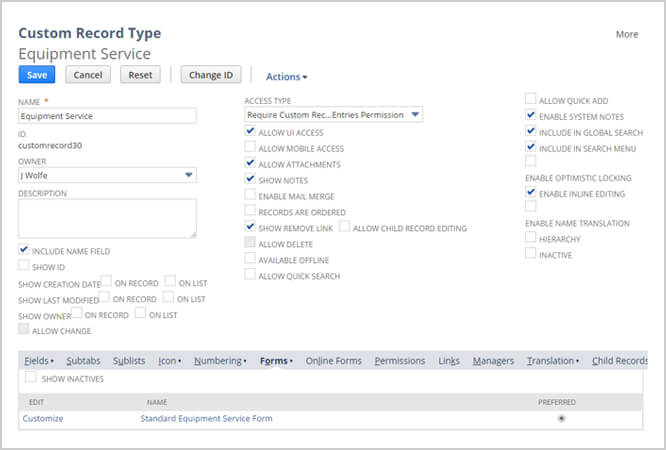Graphical Customization SuiteBuilder
Home / Graphical Customization SuiteBuilder
Menu
Application Configuration Made Easy
SuiteBuilder makes customizing NetSuite application forms, fields and records a simple point-and-click experience. SuiteBuilder puts rapid application configuration power in the hands of users and enables developers to rapidly prototype and deploy custom cloud applications. Best of all, you never have to worry about version lock because customizations carry over automatically with each new release.

Key Benefits
- Easily configure forms, fields and more based on business need
- No need for database expertise through point-and-click configuration
- Quickly change NetSuite to your company’s own terminology and branding
- Rapidly represent sophisticated data relationships without complex coding.
Key Features
Custom Fields
- Add unlimited custom fields to standard data records such as leads, opportunities, customers, orders, invoices and more
- Incorporate numerous data types like text, date, drop-down lists, images and more
- Create advanced fields that dynamically source and filter data and formula fields.
Custom Forms
- Quickly create your own custom entry forms for specific business process needs
- Easily manage fields, sub-tabs and field groupings to get just the right form you need.
Custom Records
- Create records designed to collect information specific to the needs of your business
- Attach information from custom records to entities, items or transactions using custom fields.
Custom Centers and Tabs
- Create custom “centers” that gear the user experience for a particular role, such as specific functions within finance, sales or service
- Tailor the user experience by adding custom tabs to existing or custom “centers.”
Custom Roles
- Easily create roles to manage specific permissions and restrictions
- Assign a particular custom or packaged “center” experience such as executive, sales, shipping or support
- Restrict usage based on subsidiaries, departments, classes, location and more
- Manage permissions such as to transactions, reports, forms, searches and more.
































